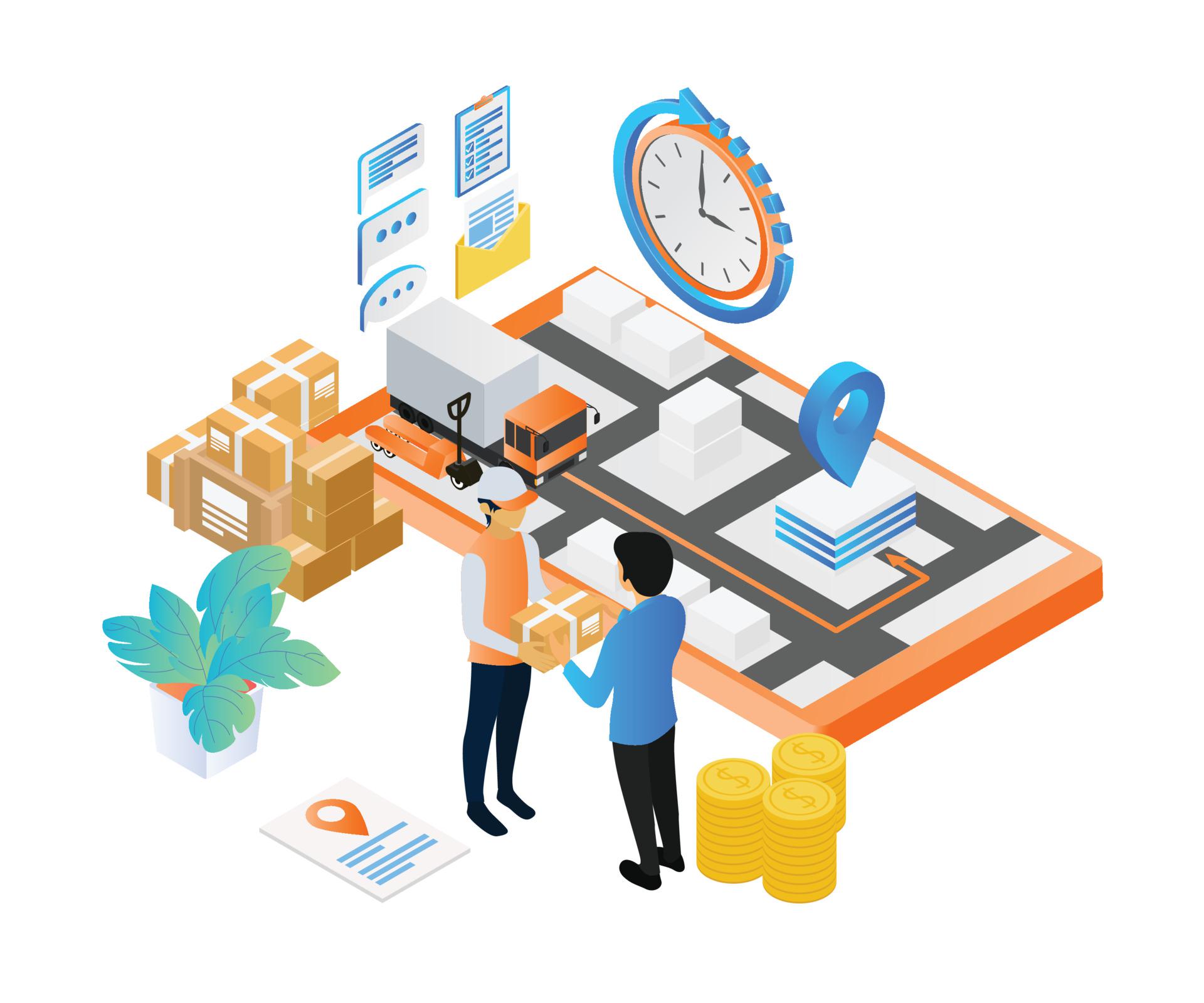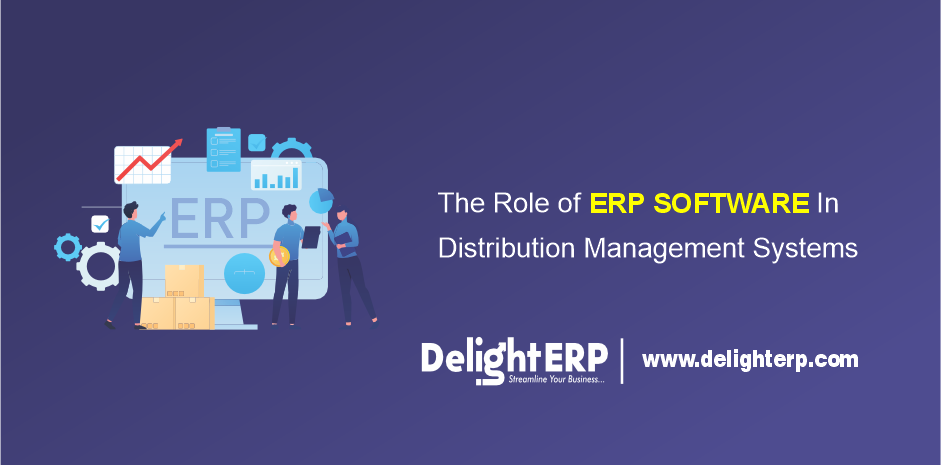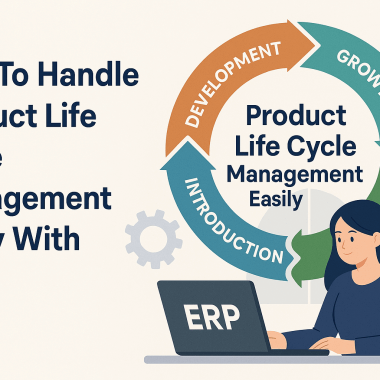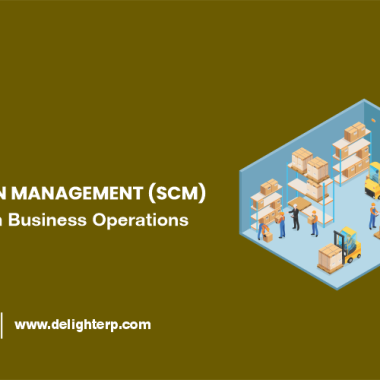Overview
ERP (Enterprise Resource Planning) Software plays a vital role in modern distribution management systems. By integrating and automating businesses are working across the whole distribution process. This software enables the distribution to streamline operations, manage inventory more effectively, and ensure timely delivery of products. Distribution management software can achieve greater visibility and control over their distribution networks and enhance coordination between departments. Moreover, software can make data-driven decisions to improve efficiency, reduce costs, and meet customer demands more effectively.
What Is The Role Of ERP Software In Distribution Management Software?
DMS (Distribution Management Software) is supreme in ERP Software by integrating various functions such as inventory management, order processing, warehouse management and supply chain logistics into one platform solution. Further, this integration enables real-time data sharing and visibility across all departments for easy decision-making. With ERP Software, businesses can automate routine tasks, reduce manual error or streamline operations to boost productivity.
Moreover, ERP software enhances customer service and satisfaction in distribution management. By providing accurate and up-to-date information on inventory levels, order status, and delivery schedules, businesses can ensure timely and accurate order fulfilment. Advanced analytics and reporting capabilities of ERP systems allow for better demand forecasting, inventory optimization, and identification of market trends, helping companies respond to changing customer demands and maintain a competitive in the market.
Benefits Of Using ERP Software In The Distribution Management Industry
By using DMS (Distribution Management Software) multiple benefits significantly enhance operational efficiency and business performance. Here are some key advantages:
– Enhanced Inventory Management:
ERP systems provide real-time visibility into inventory levels, helping businesses maintain optimal stock levels, reduce overstocking, and prevent stockouts. This leads to better demand forecasting and inventory planning.
-Improved Order Processing:
Automating order processing with ERP software reduces manual errors, speeds up the order fulfilment process, and ensures accurate and timely deliveries. This enhances customer satisfaction and loyalty.
-Streamlined Procurement:
ERP systems streamline procurement by automating purchase orders, managing supplier relationships, and tracking procurement activities. This results in more efficient procurement processes, cost savings, and improved supplier performance.
-Better Financial Management:
By integrating financial data with other business processes, ERP systems provide comprehensive financial reporting and analysis. This helps businesses manage their finances more effectively, control costs, and improve profitability.
-Enhanced Data Visibility and Reporting:
ERP software consolidates data from various functions into a single system, providing real-time insights and advanced reporting capabilities. This allows businesses to make data-driven decisions, identify trends, and optimize operations.
-Improved Customer Service:
With accurate, up-to-date information on inventory and order status, businesses can provide better customer service. ERP systems also enable personalized communication and timely responses to customer inquiries.
-Scalability and Flexibility:
ERP systems are scalable and can grow with the business. They can be customized to meet specific business needs and adapt to changing market conditions, ensuring long-term relevance and effectiveness.
-Regulatory Compliance:
ERP software helps businesses comply with industry regulations and standards by providing tools for tracking and documenting compliance-related activities. This reduces the risk of non-compliance and associated penalties.
-Increased Efficiency and Productivity:
By automating routine tasks and integrating various business processes, ERP systems reduce manual workloads and streamline operations. This increases overall efficiency and allows employees to focus on higher-value tasks.

5 Ways To Use ERP To Improve Distribution Channels (Supply Chain Management)
- Planning
- Purchasing
- Procurement & Monitoring
- Measurement
- Warehouse Management
1) Planning
ERP software does the planning phase of distribution channels by providing comprehensive information for demand forecasting and resource allocation. By analyzing data and market trends, ERP systems can predict future demand more accurately, helping businesses plan their inventory levels, production schedules, and distribution activities effectively. This foresight enables companies to meet customer demands without overstocking or understocking, thus optimizing inventory costs and ensuring timely delivery of products.
2) Purchasing
Purchasing is maintaining a smooth distribution process, and ERP software enhances this process. ERP systems streamline purchasing by automating the procurement cycle, from requisition to payment. Additionally, ERP software provides real-time visibility into supplier performance, enabling businesses to make informed decisions about vendor selection and negotiate better terms. Ultimately reducing procurement costs and improving supply chain efficiency.
3) Procurement & Monitoring
ERP software enhances procurement by integrating distribution information, purchase orders, and contract management into a unified system. This integration facilitates better supplier relationship management and ensures that procurement processes are transparent and efficient.
4) Measurement
Measurement and analytics are critical for evaluating the performance of distribution channels. ERP software provides strong reporting and analytics tools that allow businesses to track key performance indicators (KPIs) such as order accuracy, delivery times, inventory turnover, and supplier performance. By analyzing these metrics, companies can identify inefficiencies, monitor progress towards goals, and implement data-driven improvements.
5) Warehouse Management
Efficient warehouse management is essential for optimizing distribution channels, and ERP software provides comprehensive solutions to manage warehouse operations. ERP systems facilitate inventory tracking, space optimization, and order fulfilment processes, ensuring that warehouses operate smoothly and efficiently.
Improve Distribution Management System With Delight ERP Software
Delight ERP cloud-based distribution management software helps companies analyze demand, allocate resources and schedule distribution channels for customer needs. Delight ERP ensures that they provide up-to-date information like, production data, financial information, inventory and orders are updated in real-time etc… In the Delight ERP system, users can create a different distribution channel for the separate distributor’s order process. Or distributions can create slot-wise orders for the easy distribution process.
Through the Delight ERP Software dealers or distributors can check the price history for the specific customer. Because that data will analyze the customer purchasing history towards the products. Further, Delight ERP software is a rights and role-based system.
Conclusion
Incorporating an ERP system like Delight ERP into your distribution management strategy can transform your operations, leading to increased efficiency, reduced costs, and enhanced customer satisfaction. By providing real-time data, automating routine tasks, and offering comprehensive visibility across all distribution channels, Delight ERP helps businesses make informed decisions, optimize their supply chain, and stay competitive in the market.
Contact us today to learn more about how Delight ERP can help your business achieve greater efficiency and success.
Get a FREE DEMO!





